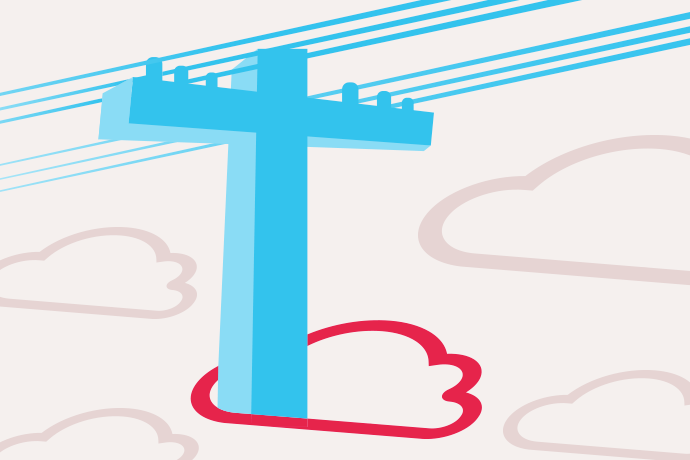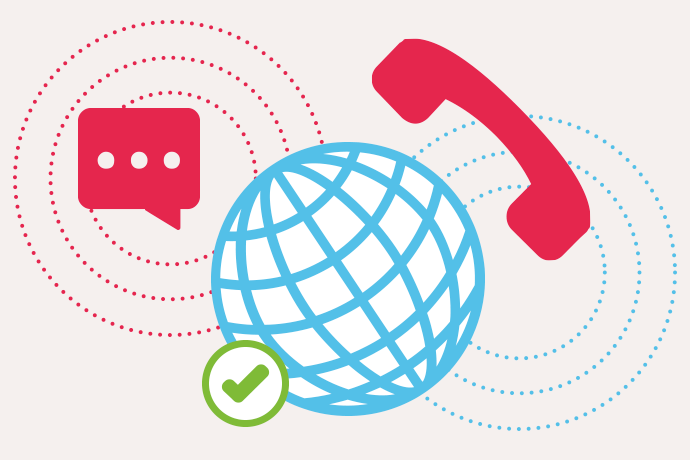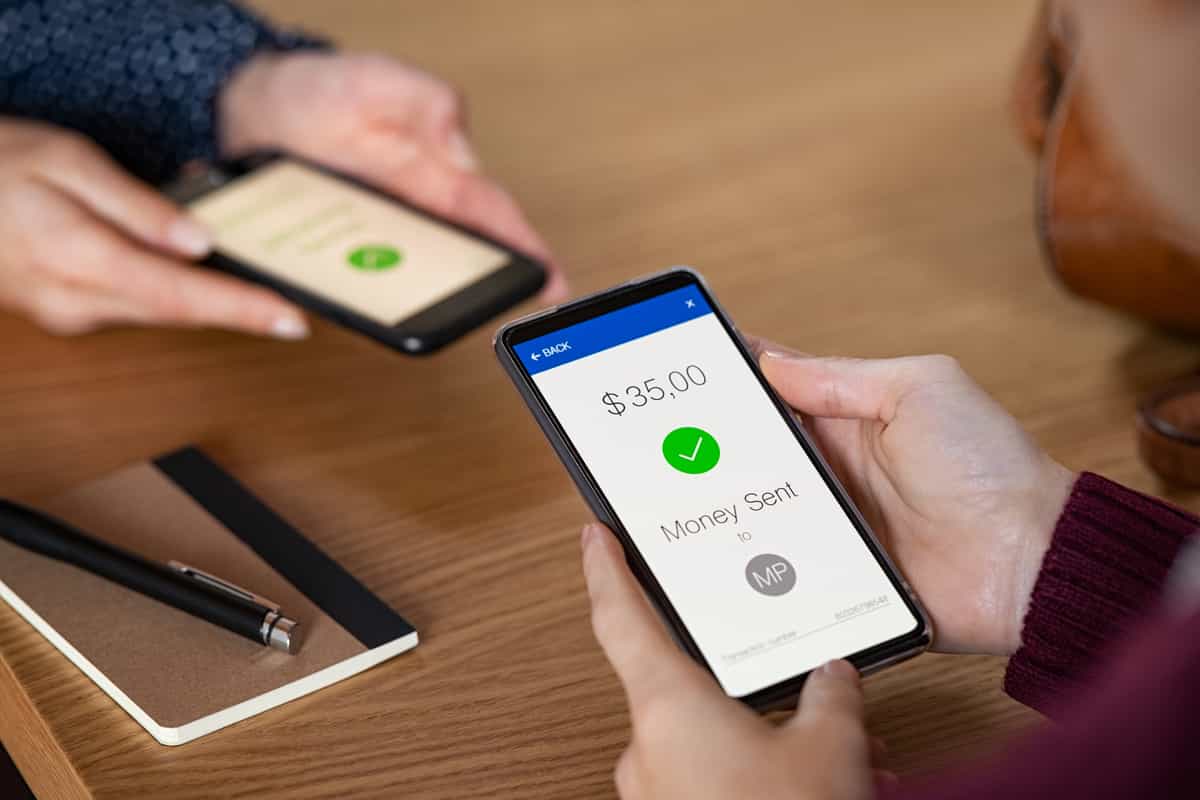Cart Total
$0.00
-
Your shopping cart is empty
Loading

Hello! Log in Your Account
New customer? Start here


|
6 min read
Contents
Quick Summary
Get your business up to speed before the PSTN and ISDN switch off in 2027. Discover what digital VoIP technologies will mean for business landlines in the future.
BT Openreach announced that by 31st January 2027 all Public Switched Telephone Network (PSTN) landlines will be transitioned to new digital phone lines and operate using VoIP technology.
For businesses around the UK, this will mean embracing a more flexible and scalable, modern digital solution compared to traditional, older phone lines.
Originally, landlines were due to be replaced with digital VoIP services in 2025, but this target was pushed back to the end of January 2027. VoIP stands for Voice over Internet Protocol and is a collection of digital technologies that enable voice calls to be delivered via an Internet connection. This technology ensures conversations can take place without the need for a physical copper landline being installed at the premises.
Analogue landline phones will not natively work with VoIP. However, VoIP to analogue telephone adaptors (ATAs) will enable backwards compatibility between analogue phones and the new digital VoIP service.
Alternatively, a dedicated VoIP phone, sometimes known as an IP phone or Cloud phone, can be used with a VoIP service. VoIP phones bring with them the benefit of supporting a broader range of frequencies and codecs, resulting in better call clarity.
Softphones, or VoIP apps on the other hand, can also be used instead of analogue landline phones. In comparison to a VoIP or landline phone, softphones can be used to handle calls on a desktop computers, laptops, tablets, and smartphones. Unlike physical on-premises phones, softphones provide businesses with a degree of flexibility, while also minimising additional hardware and maintenance costs.
Longterm, traditional landline phones will need to be replaced by apps or devices that use VoIP technologies to handle calls over the Internet.

Analogue copper landlines were first introduced in the 1800s, paving the way for the first commercial telephone exchanges and long-distance calls being made. This network of copper wires, undersea cabling, satellites, and roadside cabinets have enabled people all over the world to connect, but technology has marched on.
By 1989, Tim Berners-Lee had invented the World Wide Web which in turn led to the creation of VoIP and digital phone lines. Continued full fibre roll out, as well as advancements in broadband speeds, data and WiFi technologies have meant that high quality conversations are now even easier to conduct via an Internet or data connection.
With these advancements digital phone line set-up has become infinitely faster than installing a business landline, in part as businesses can sidestep tedious installation times where a broadband connection is already present.
For businesses, VoIP can provide an element of portability, simplifying remote working and making office moves less disruptive. Copper landline phone systems unfortunately can’t compete in terms of flexibility, so in situations where staff need to work from multiple locations, on the go, or are employed by multi-office organisations, a more dynamic solution will slice open a ream of new business possibilities.
In contrast to old copper landlines, VoIP and digital phone systems bring with them so many more features. These include features like CRM integration, IVR call menus or call queuing, features that for smaller businesses and SMEs, were previously unaffordable and out of reach.
January 2027: Since May 2024, the updated date for the Public Switch Telephone Network (PSTN) to be switched off is 31st January 2027.
December 2025: The original timeline for the Public Switch Telephone Network (PSTN) to be switched off by was December 2025.
September 2023: Since 2020, individual UK areas have seen the sale of PSTN landlines phased out on a location-by-location basis, and as of September 2023, PSTN lines will no longer be available to buy in the UK.

Several other countries such as Japan, Sweden and Germany are forging ahead and making the move from analogue to digital, while the Netherlands and Estonia having already switched off their PSTN networks. Globally, from Asia to USA, digital VoIP solutions are seeing a surge in adoption particularly in the healthcare industry and within government due to its adaptability and ease of rollout.
In February 2023, within the UK, the Office for National Statistics (ONS) reported that 41% of businesses found the cost of goods or services rising, with energy costs and raw materials in particular contributing to these price increases. Some price rises will inevitably be out of an organisation’s control, but it makes sense to minimise the costs that can be controlled, where possible to do so.
This is precisely why it makes sense to get a head start and transfer your landline before the big PSTN switch off in 2027. Doing so means a reduction in communication costs, hardware costs and ample time to bed in a new phone system within your organisation without any last-minute panics.
Moving up to even a basic plan now will result lower call and maintenance costs for your business, along with an increase in call features such as voicemail to email, time-of-day call routing and more.
For more information about the PSTN switch off and how you can get started with a digital VoIP phone system, check out our in-depth PSTN switch off guide.
If your business is looking to get ahead of the pack and gain a competitive advantage, make sure you tick off the points noted in our checklist for businesses moving to VoIP.
Leaving landlines behind can really transform the way businesses communicate, breaking down borders and opening up collaboration across the world. Gain opportunity through flexibility and make the move today.


Explore how Skype's end-of-life announcement presents an opportunity for small businesses to upgrade their Skype number to a VoIP phone system.
Posted March 10 2025 | 5 min

Everything you need to consider when moving offices, from hardware to call quality.
Posted January 16 2025 | 6 min

Corded headsets vs wireless headsets? Learn about the key considerations when purchasing a VoIP headset for your VoIP phone system and softphone apps.
Revised December 3 2024 | 9 min

VoIP is incredibly well suited to being the phone system for businesses of all sizes. Large businesses in particular can benefit from great scalability, bulk-deployment options and more.
Revised August 21 2024 | 8 min

Examining the differences between VoIP and PSTN communications solutions and VoIP benefits.
Posted July 16 2024 | 5 min

With the upcoming switch from PSTN to VoIP, we look at what processes other countries have taken when they decided to migrate their own copper line networks.
Posted August 1 2023 | 6 min

VoIP apps or VoIP desk phones, which is better and why? We discuss how VoIP desk phones could be obsolete with the availability of greater and more powerful VoIP apps .
Revised November 2 2022 | 7 min

Cloud VoIP phone systems offer key advantages for businesses. Here are 13 of VoIP's key benefits that have helped to drive the adoption of business VoIP.
Revised May 10 2022 | 12 min

How cost-effective is VoIP? Is VoIP secure? How fast does my Internet need to be? We answer these questions and more.
Posted January 11 2022 | 5 min

VoIP won't work without the internet, but that doesn't mean you need a wired broadband connection. A supplemental mobile cellular data network (4G, 5G, LTE) can make VoIP calls possible even if broadband is unavailable.
Posted January 11 2022 | 5 min

Offer great customer service, but do so efficiently. Automate aspects of your phone system and provide self-service information to free staff resources.
Posted September 24 2021 | 4 min

Call recording is a feature of good VoIP phone systems that allows customers to record their business calls, then playback and download them.
Posted September 17 2021 | 6 min

Large corporations have requirements that surpass the capabilities of most phone systems. With Yay.com build your ideal business phone system effortlessly.
Revised August 25 2021 | 5 min

A good business phone system will help you run day-to-day operations more efficiently and effectively. Here are 5 ways yours can improve customer satisfaction.
Posted August 19 2021 | 4 min

Features like call parking and shortcodes can boost the efficiency of your business phone system, saving your teams time.
Posted August 18 2021 | 6 min

Learn what VoIP 'QoS' or Quality of Service is and why your business network needs it configured for the best VoIP experience.
Posted March 9 2021 | 3 min

With Yay.com's free VoIP trial you can try business VoIP for free for fourteen days - no credit card required. Enjoy all of our powerful business phone system features at no cost.
Posted December 3 2020 | 4 min

Business VoIP makes it possible to work from anywhere. We'll get you up and running for working from home, no matter whether you prefer VoIP desk phones or VoIP apps.
Posted November 12 2020 | 3 min